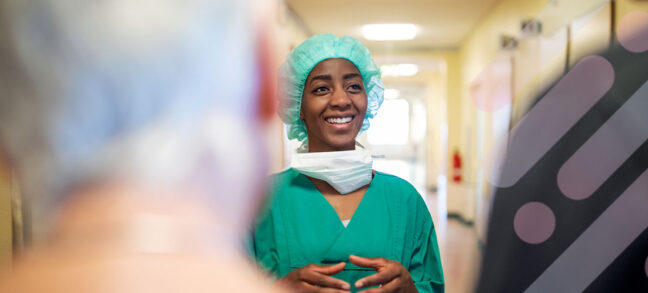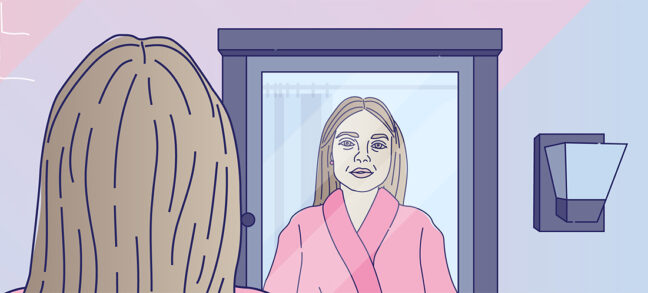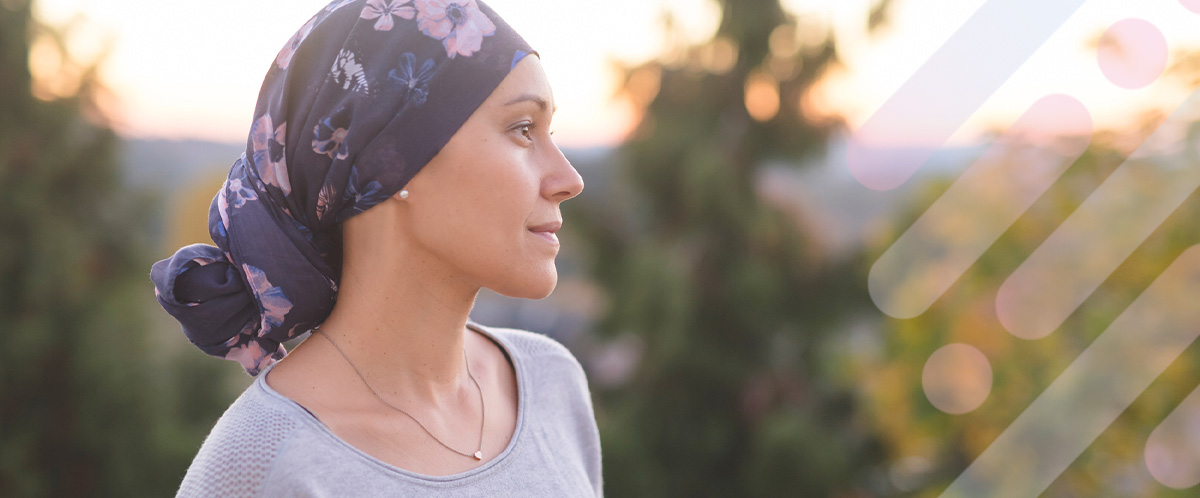A breast cancer diagnosis is life changing. Beyond the shock, disbelief, anger—any number of the stages of grief, it takes such a toll on those who must face a battle with their own bodies.
Outside of the treatment, the medication, the possible surgeries and lifestyle changes, hair loss is also a common side effect.
Dealing with hair loss, on top of a breast cancer diagnosis, can feel like losing another part of what makes you, you. Because hair is such a personal and powerful part of how we define ourselves.
When it comes to breast cancer and hair loss, what can you expect?
why is breast cancer linked to hair loss?
It all has to do with how breast cancer is treated.
According to the American Cancer Society, “If your hair is going to fall out, it most often starts within 1-3 weeks of treatment and becomes more noticeable 1 to 2 months after therapy starts.”
But what is it about the therapies and treatments that lead to hair loss? Hair loss in individuals with cancer can be caused by a few different triggers.
chemotherapy
Some chemotherapy drugs can damage hair follicles. This happens because chemotherapy targets all rapidly growing cells, and the cells that make up hair follicles are some of the fastest growing in our bodies.
Some chemo drugs cause hair loss or thinning only on the scalp, while others impact pubic, arm and leg hair, along with eyebrows, eyelashes and even nostril hair.
The timing and frequency of chemotherapy treatments also affects the rate and ratio of hair loss. According to breastcancer.org, “Some types of chemotherapy are given weekly and in small doses, which may minimize hair loss. Other types of chemotherapy are scheduled every 3 to 4 weeks in higher doses and may be more likely to cause more hair loss.”
radiation therapy
This therapy only causes hair loss on the area of the body that is being treated.
Radiation therapy can lead to hair loss on the scalp if treatment targets the brain due to spreading cancer. Radiation targets cancer cells with a high-energy beam, so in the process some normal cells (like those that make up hair follicles) can be damaged.
hormonal therapy
This type of therapy works by lowering estrogen levels or blocking its effects in breast tissue.
Some hormonal therapies can cause hair thinning, often toward the frontal hairline, the middle part or the crown of the head.
preparing for hair loss
If you know that hair loss is a possibility with your specific breast cancer treatment plan, planning ahead can help make the transition easier. Here are a few activities that can help you prepare for hair loss before it happens.
pick out a wig
Wigs can be a great way to keep your confidence up and feel more like yourself during treatment.
Many women choose to pick out their wigs before treatment starts. This is beneficial in many ways. First, it is easier to match the wig to your natural hair color if that’s the color you want to keep. It also gives you more time to pick out what works best for you, without feeling rushed.
The same goes for eyebrows. Picking a makeup shade that matches your natural shade (if that’s the shade you want) will help ensure you’re ready should hair loss also impact your eyebrows.
find favorite accessories
Hats, scarves and turbans are some of the accessories that women wear during treatment. Not only do they act as a fashionable addition to an outfit, but they also protect the sensitive skin of your scalp from the elements.
get a short haircut
Rapidly losing your hair can be a big leap for many women. Some opt to cut their hair shorter before their treatment begins. Shorter hair also tends to look fuller than longer hair. This lets them slowly get used to the change in their appearance. From there, you can let the hair fall out as treatment progresses or shave it all off as the treatment begins.
consider cold capping during chemo
Cold capping is a process wherein chemotherapy patients wear a cooled cap around their head before, during and after their treatment session.
According to the Mayo Clinic, “When cooled, the blood vessels in the scalp constrict, reducing blood flow to the hair follicles. That means less chemotherapy medication can get into the hair follicle cells. The cold also makes those cells less active, so chemotherapy drugs don’t target them as quickly.”
after treatment ends
As you progress toward treatment completion, be sure to take good care of your scalp. Your scalp may become tender, itchy or tingly, so it’s important to maintain a good skin care regimen with a moisturizing shampoo and conditioner, as well as a gentle lotion with SPF for your sensitive skin.
According to Breast Cancer Now, “There is evidence that some chemotherapy drugs may result in long lasting or permanent hair loss. Permanent hair loss is described as incomplete regrowth of hair six months or more after completing treatment.” But more often than not, the hair starts to grow back once your specific treatment is completed.
As your hair grows back, you might notice some changes from the way it was before treatment. Your new hair growth might become a different: texture, color, thickness, pattern (curly or straight).
Ask your stylist about how soon after treatment you can return to coloring or styling your regrown hair.
Some links will navigate you away from the Resensation® website. Links outside of resensation.com are provided as a resource to the viewer, and do not constitute an endorsement or recommendation by Axogen. Axogen accepts no responsibility for or control over the content of the linked sites.
Resensation Blog

How does mastectomy impact the nerves in the breast?
One sometimes overlooked aspect of mastectomy is its impact on nerves. Read what happens to nerves during mastectomy and explore…
Read More
What happens during implant breast reconstruction with Resensation®?
By repairing sensory nerves, Resensation® enables you to potentially regain sensation to your chest. Read how this procedure works during…
Read More
how resensation® helped Leanna feel secure in her family’s future
With Resensation®, Leanna can be there to watch her kids grow up—without losing the feeling of being whole.
Read More
sensory retraining: what is it, and how can it help me after resensation®?
Sensory retraining is a series of exercises designed to help you reconnect with your body after breast reconstruction with Resensation®.
Read More